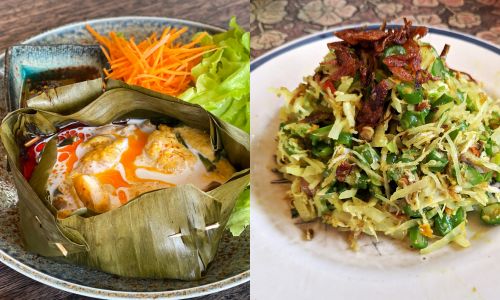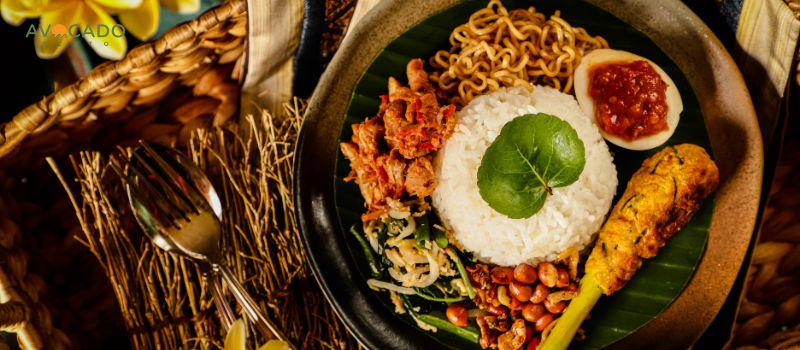In today’s fast-moving world, meals are often squeezed between busy schedules, leaving little time to truly taste and enjoy what we eat. Yet in West Bali where life flows at a gentler rhythm the art of slow eating offers a refreshing reminder to pause, breathe, and connect with every bite. Rooted in both ancient wisdom and modern nutritional science, this mindful practice transforms eating into a deeper, more meaningful experience.
Slow eating encourages you to savor each mouthful noticing textures, flavors, and aromas, while allowing your body time to process food naturally. According to research from Harvard’s School of Public Health, chewing food thoroughly not only aids digestion but also helps regulate appetite by signaling fullness hormones like leptin. When you take your time, you’re less likely to overeat, leading to better energy balance and improved digestion.

In West Bali, where traditional cooking still relies on fresh ingredients and gentle preparation, slow eating naturally aligns with the local lifestyle. Dishes like lawar (vegetable and coconut salad) or pepes ikan (fish steamed in banana leaves) are best enjoyed slowly layer by layer to appreciate their complex spice blends. Scientific studies even show that certain nutrients, such as curcumin from turmeric, are more effectively absorbed when eaten slowly and paired with black pepper, which enhances bioavailability up to 2,000%. So the slower you eat, the more your body can benefit from every ingredient.

Beyond its physical benefits, slow eating cultivates mindfulness and emotional balance. In Bali’s culture, meals are not just about nourishment but also about connection to people, nature, and the moment itself. Sitting down to a simple plate of nasi campur (mixed rice with vegetables, sambal, and proteins), you can sense the earthy aroma of lemongrass, the heat of chili, and the freshness of coconut. Eating slowly allows your brain’s reward centers to fully activate, releasing dopamine that enhances satisfaction and reduces the urge to snack later.
In the quiet coastal areas of West Bali, like Medewi or Negara, slow eating complements the natural surroundings. Picture enjoying a fresh seafood meal after surfing, or a warm ginger tea following a yoga session the act of eating becomes a meditation, harmonizing body and mind. Health experts even suggest that slowing down your meals can lower stress and improve gut health, thanks to the release of digestive enzymes that work best in a relaxed state.
Practical Ways to Embrace Slow Eating
Incorporating slow eating into your daily routine is simple but transformative. Here are some practical steps to start:
- Begin with smaller portions focus on quality, not quantity.
- Chew thoroughly, ideally 25–30 times per bite, to enhance digestion.
- Pause between bites set down your fork or spoon to fully experience each flavor.
- Eliminate distractions like phones or TV, letting your senses engage with the meal.
- Savor with all senses notice color, aroma, and texture before tasting.
- Pair meals with herbal teas such as lemongrass or ginger, which calm the digestive system.
- Give thanks before eating, a Balinese-inspired gesture that fosters gratitude and presence.
When practiced regularly, these habits don’t just improve health they reshape your relationship with food, turning ordinary meals into rituals of care and balance.
Slow eating is more than a diet trend it’s a lifestyle that celebrates presence, gratitude, and connection. In the peaceful corners of West Bali, this mindful approach to food invites you to rediscover joy in simplicity one bite at a time.
And when you’re ready to experience this harmony firsthand, visit アボカドレストラン in Medewi. Here, every dish from vibrant smoothie bowls to locally inspired meals is crafted to be savored slowly, surrounded by nature’s calm and Bali’s timeless charm. It’s not just dining, it’s a journey toward balance and mindful living.
